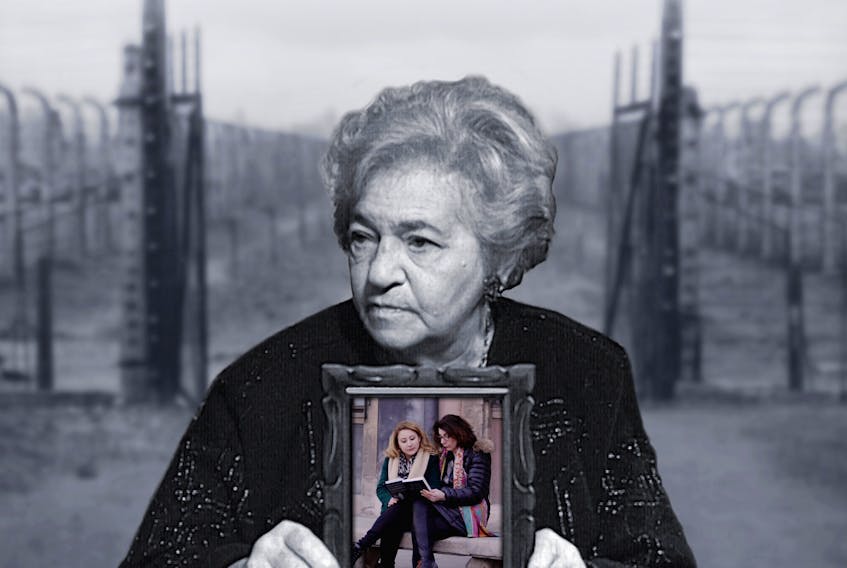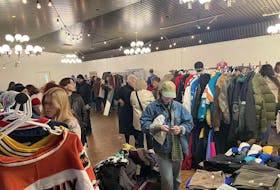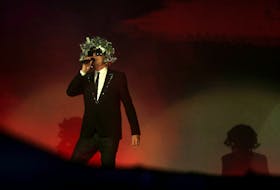“Movies can do good.”
An excerpt from director, writer and producer Serena Dykman’s 2016 documentary “Nana,” this short line of dialogue holds a lot of weight — it is an affirmation to Dykman that her work is not for naught, and the work has been mentally and emotionally draining.
Presented by the Nickel Quarterly Film Series, “Nana” screened at the NIFCO headquarters in downtown St. John’s on Wednesday. The small room was filled with chairs, with only a handful left empty after Nickel Independent Film Festival executive director Elling Lien introduced the evening’s feature.
Touted as a “trans-generational documentary,” “Nana” tells the story of Maryla Michalowski-Dyamant, a Polish Jew who survived three concentration camps during the Second World War.
Maryla’s story — a story she told often, as she educated younger generations about the horrors and realities of war — is now being told by her granddaughter, Serena, and daughter, Alice Michalowski.
The Charlie Hebdo shootings, a 2015 terrorist attack in France, inspired Serena to begin creating this documentary, which started with 30-ish hours of family video and recorded clips. As the news spread of Serena’s ambitious project, her deceased grandmother’s many supporters contacted Serena with material, providing the young filmmaker with more than 100 hours of archival footage.
Though “Nana” is just one hour and forty minutes long, the audience is treated to a plethora of snippets from numerous television interviews, and interviews with Maryla’s many friends, colleagues and fans.
There is also intensely haunting footage of Maryla touring concentration camps with groups of teens, jokingly welcoming them into her “apartment,” as they walk through old bunkers at the “Factory of Death.”
Maryla displays sharp wit and humour while recounting absolutely tragic and heartbreaking stories of her time in Ravensbruck, Malchow and Auschwitz, and her stint as a translator for Dr. Josef Mengele, known as the “Angel of Death.”
This hilarity from the world’s most badass grandmother brings light into the dark tale, and makes “Nana” an absolutely gripping feature film and a well-deserved winner at many international film festivals.
Throughout the film, the mother and daughter duo struggle with their familial connection to Marlya, the weight of carrying her story and the pressure to continue telling it, their unique identities shaped by Maryla’s intense life story.
Told mostly in French, the subtitles relay the film’s message, which in essence boils down to the fact that if we do not talk about these atrocities, and acknowledge them for what they are — a crime against humanity — then how do we stop something like this from happening again?
Maryla’s oft-repeated message, a warning of sorts, acts as a plea to future generations to ensure no one would ever face what she faced during her lifetime.
Telling this story could not have been easy — for Maryla, Alice or Serena — but Maryla’s story, deeply profound and powerful, resonates with audiences the world over.
“Nana” is a tribute to a heroic woman who defied the odds, and she was truly blessed to have a family that vows to continue spreading her message years after her death.









